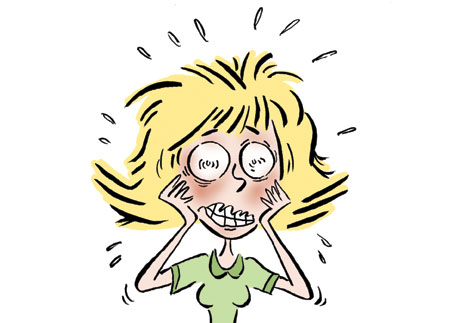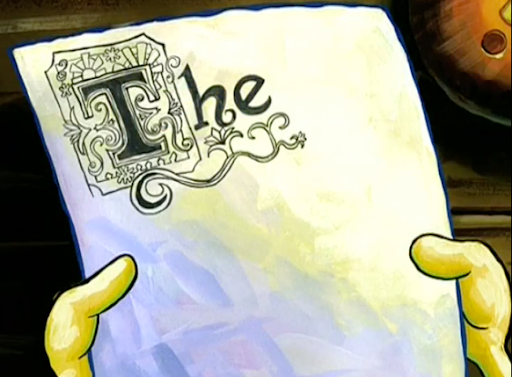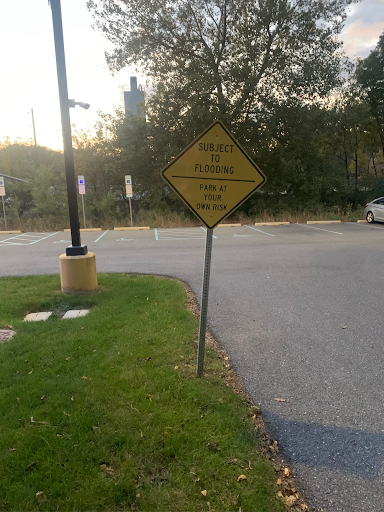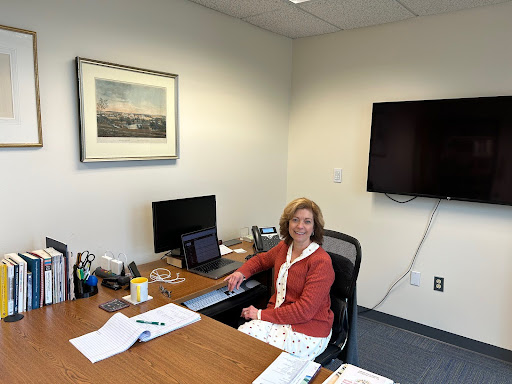The Upside to Stress

With the end of the semester upon us, there is no doubt you will experience the kind of stress that is commonplace among college students.
Those of us who have had the pleasure of experiencing six or seven rounds of final exams know the telltale signs by heart: overwhelming to-do lists, late nights, and copious amounts of the caffeine of your choice. To say that this is not an enjoyable period may be an understatement.
We are all too familiar with the effects of stress on our bodies and minds; not only do we endure the headaches — literal and figurative — exhaustion, and imminent bad moods, but we have come to expect them from those around us. We know that it is not a good thing because we have been told it is not a good thing, and we silently promise to take better care of ourselves when the agonizing week is over.
But what if I told you there was an upside to all of that stress?
Let me clarify: this “good” stress is not the kind born of traumatic or chronic events. Prolonged exposure to those stresses can be damaging, and precautions should be taken to relieve or manage them. There is no lack of evidence behind this assertion.
On the other hand, dealing with a heavy workload may have a hidden upside. A book titled The Upside of Stress by Kelly McGonigal suggests that the key may be as simple (or difficult) as changing your mindset. Everyday stress can certainly be harmful, but this is only the case if you believe it to be harmful. If you flip your view of stress around, there is the potential for it to be an exceptional motivator rather than a detrimental burden.
If attempting that strikes you as daunting, you are not alone. Even those who teach it can struggle to apply it to their daily lives. Dr. Brill, a faculty member of the Moravian College psychology department, has taught numerous classes revolving around workplace stress and work-life balance. Even so, he says that he is “not always able to put into practice the ideal coping skill sets that [he] teaches.”
It takes time and keen self-awareness to view stress as a series of positive challenges that bring you one step closer to your goal. After all, with no challenges to face, you risk stagnating somewhere unfulfilling, albeit with a lot less stress. If you don’t believe me, just look at the statistics on stress in the United States. According to a study done by Joseph Carroll, forty percent of Americans struggle with daily stress. Yet, our average incomes, life expectancies, and standard of living are higher than in many countries with low stress levels.
The next time you are stressing about an important presentation or an imminent deadline, tune into your body and make use of your natural, biological challenge response. This usually includes feelings associated with the classic flight or fight response, such as an increased heart rate and adrenaline rush, but differs in that you become focused instead of fearful.
You may be tempted to take some calming breaths, but McGonigal advises an alternative route: channel that energy into getting things done. It is likely that doing so will lead to that evasive state of flow that everyone talks about and strives for. If you want to do more and better work, McGonigal claims, this is the state you want to achieve.
Practicing this level of mindfulness and energy channeling is not easy, and you will most likely not see immediate results. Don’t let this get you down! Just keep at it, being aware of your stressors, adjusting how you think about your experiences and how they relate to your well-being. A little change in mindset can go a long way.
All that said, keep in mind that there are situations that require professional assistance. The techniques described above should not be used when medical intervention is needed. If you are experiencing anxiety, depression, or any other symptom of burnout that is significantly interfering with your daily activities, please seek medical attention. The campus Counseling Center is there to help. Contact the Center at 610-861-1510 or by email at [email protected].










